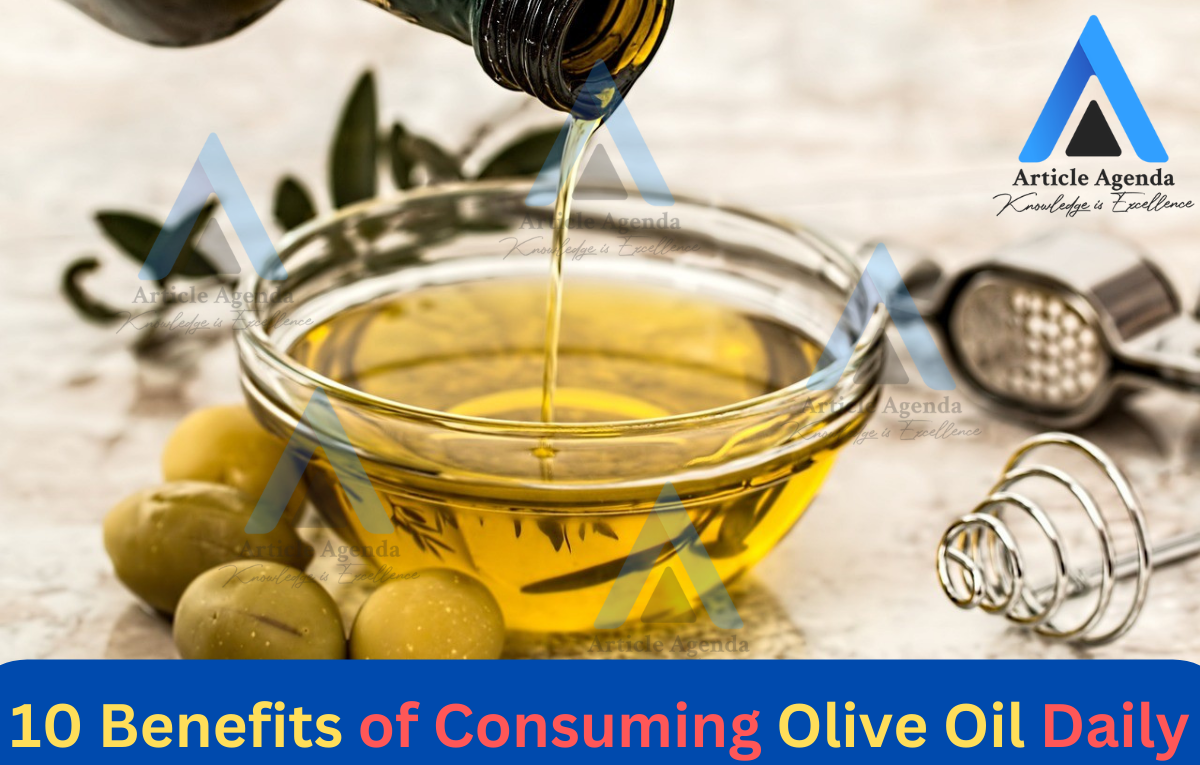Introduction to Olive Oil and Its History
Olive oil has been a staple in Mediterranean cuisine for centuries, but its benefits extend beyond its delicious taste. The history of oliveoil dates back to ancient times, when it was revered for its medicinal properties and used for various purposes. Today, it is widely recognized as one of the healthiest oils available.
Oliveoil is derived from the fruit of the olive tree, scientifically known as Olea europaea. It is rich in monounsaturated fats, considered the “good” fats that promote heart health. Additionally, it contains antioxidants, vitamins, and minerals that contribute to its numerous health benefits.
Table of Contents
- Introduction to Olive Oil and Its History
- The Nutritional Benefits of Olive Oil
- Olive Oil and Heart Health
- Olive Oil and Weight Management
- Olive Oil and Brain Health
- Olive Oil and Skin Health
- Olive Oil and Digestive Health
- Olive Oil and Cancer Prevention
- Olive Oil and Blood Sugar Control
- Olive Oil and Inflammation Reduction
- Conclusion
- Latest Post:
The Nutritional Benefits of Olive Oil
One of the primary reasons why olive oil is highly regarded is its exceptional nutritional profile. It is packed with essential nutrients that are essential for maintaining good health. Olive oil is an excellent source of vitamin E, a potent antioxidant that helps protect the body against oxidative stress and inflammation. It also contains vitamin K, crucial for blood clotting and bone health.
Furthermore, olive oil is abundant in healthy monounsaturated fats, specifically oleic acid. Studies have shown that consuming monounsaturated fats can help reduce harmful cholesterol levels, lower blood pressure, and reduce the risk of heart disease. The high monounsaturated fat content in olive oil makes it ideal for those looking to improve their heart health.
Read More: 06 Major health tech trends in 2024
Olive Oil and Heart Health
Heart disease is a leading cause of death worldwide, and adopting a heart-healthy diet is crucial for preventing this condition. Olive oil has long been associated with cardiovascular health due to its high monounsaturated fat content. Research has consistently shown that replacing unhealthy fats, such as saturated and trans fats, with monounsaturated fats can significantly lower the risk of heart disease.
The monounsaturated fats in olive oil help improve cholesterol levels by increasing high-density lipoprotein (HDL), also known as the “good” cholesterol. HDL cholesterol is vital in removing low-density lipoprotein (LDL) cholesterol, also known as the “bad” cholesterol, from the bloodstream. By promoting a healthy cholesterol balance, olive oil helps prevent plaque buildup in the arteries, reducing the risk of heart disease.
In addition to its impact on cholesterol levels, olive oil possesses anti-inflammatory properties. Chronic inflammation is a significant contributor to heart disease, and olive oil helps protect the cardiovascular system by reducing inflammation. Its antioxidant compounds, such as polyphenols, neutralize free radicals that can damage blood vessels and lead to heart disease.
Read More: Global And Cultural Awareness
Olive Oil and Weight Management
Maintaining a healthy weight is essential for overall well-being and reducing the risk of various health conditions. Olive oil can be a valuable asset in weight management due to its unique composition and ability to promote satiety.
Unlike unhealthy fats found in processed foods, olive oil is rich in monounsaturated fats that provide a feeling of fullness and satisfaction after a meal. This can help prevent overeating and promote portion control, ultimately aiding in weight management. Additionally, the monounsaturated fats in olive oil can enhance fat oxidation, burning stored fat for energy.
Moreover, olive oil contains a compound called oleuropein, which has been shown to increase adiponectin production. Adiponectin is a hormone that helps regulate metabolism and promotes fat breakdown. By stimulating adiponectin production, olive oil can support weight loss efforts.
Olive Oil and Brain Health
As we age, maintaining brain health becomes increasingly important. Olive oil has shown promise in promoting cognitive function and protecting against age-related cognitive decline.
One of the critical components of olive oil that contributes to its brain-boosting properties is oleocanthal, a natural phenolic compound. Oleocanthal has been found to have anti-inflammatory and antioxidant effects, which can help protect the brain from oxidative stress and inflammation. These factors are known to contribute to neurodegenerative diseases such as Alzheimer’s and Parkinson’s.
Additionally, the monounsaturated fats in olive oil are crucial in maintaining healthy brain function. They help support the production and maintenance of cell membranes in the brain, allowing optimal communication between brain cells. This can enhance cognitive abilities such as memory, learning, and problem-solving.
Read More: Will Virtual Reality HealthCare Services Take Off In
Olive Oil and Skin Health
The benefits of olive oil are not limited to internal health; it can also work wonders for your skin. Olive oil has been used for centuries as a natural remedy for various skin conditions and as a moisturizer.
The antioxidants in olive oil, such as vitamin E and polyphenols, help protect the skin against free radicals and oxidative damage. They neutralize harmful molecules that can lead to premature aging and skin damage. Regularly applying olive oil to the skin can help reduce the appearance of wrinkles, fine lines, and age spots, resulting in a more youthful complexion.
Furthermore, olive oil is a natural emollient, meaning it helps lock in moisture and keep the skin hydrated. It forms a protective barrier on the skin’s surface, preventing moisture loss and keeping it soft and supple. This makes olive oil an excellent choice for dry or sensitive skin individuals.
Read More: Creating A Pollinator Corridor In your Community
Olive Oil and Digestive Health
Maintaining a healthy digestive system is vital for overall well-being. Thanks to its unique properties and composition, Olive oil can contribute to digestive health in several ways.
Firstly, olive oil has been shown to promote bile flow, a substance the liver produces that aids in the digestion and absorption of fats. By improving bile production and flow, olive oil helps optimize fat digestion, preventing bloating and indigestion.
Secondly, olive oil has a mild laxative effect, which can help alleviate constipation. Its lubricating properties help soften the stool and promote regular bowel movements. Consuming olive oil regularly can help regulate bowel movements and improve overall gut health.
Lastly, olive oil contains a compound called oleic acid, which has been shown to have anti-inflammatory effects on the digestive system. Inflammation in the gut can lead to conditions such as inflammatory bowel disease (IBD) and irritable bowel syndrome (IBS). Olive oil can help alleviate symptoms and promote a healthy gut by reducing inflammation.
Olive Oil and Cancer Prevention
Cancer is a devastating disease that affects millions of people worldwide. While there is no guaranteed way to prevent cancer, confident dietary choices can help reduce the risk. With its powerful antioxidant and anti-inflammatory properties, olive oil has shown promise in cancer prevention.
The antioxidants in olive oil help protect cells from DNA damage caused by oxidative stress. When DNA damage occurs, it can lead to the formation of cancerous cells. By neutralizing free radicals and reducing oxidative stress, olive oil helps lower the risk of cancer development.
Furthermore, the anti-inflammatory compounds in olive oil can help inhibit the growth and spread of cancer cells. Chronic inflammation has been linked to an increased risk of cancer, and by reducing inflammation, olive oil may help prevent the onset of this devastating disease.
Read More: Hypertension A Silent Killer
Olive Oil and Blood Sugar Control
Maintaining stable blood sugar levels is vital for individuals with diabetes or those at risk of developing the condition. Olive oil can be a valuable addition to a diabetes-friendly diet due to its unique properties that promote blood sugar control.
Studies have shown that olive oil consumption can improve insulin sensitivity, allowing cells to use glucose from the bloodstream effectively. This can help prevent spikes in blood sugar levels and reduce the risk of complications associated with diabetes.
Additionally, the monounsaturated fats in olive oil have been found to lower fasting blood sugar levels and decrease insulin resistance. These effects contribute to better blood sugar control and improved overall glycemic control.
Read More: Unlocking the Benefits of a Healthy Sahulat Program: The Ultimate Guide
Olive Oil and Inflammation Reduction
Chronic inflammation is at the root of many health conditions, including heart disease, diabetes, and arthritis. Olive oil’s anti-inflammatory properties can help reduce inflammation, promoting overall health and well-being.
The polyphenols in olive oil have been shown to inhibit inflammatory markers and reduce the production of pro-inflammatory molecules. So, olive oil helps modulate the body’s inflammatory response and prevent excessive inflammation.
Furthermore, olive oil contains a compound called oleic acid, which has been found to have anti-inflammatory effects. Oleic acid helps reduce the production of inflammatory substances, alleviating symptoms associated with inflammatory conditions such as arthritis.
Conclusion
In conclusion, consuming olive oil daily can benefit your health. From promoting heart health, aiding in weight management, improving brain function, and reducing inflammation, olive oil is truly a powerhouse of nutritional goodness. Its unique composition of monounsaturated fats, antioxidants, and anti-inflammatory compounds makes it a valuable addition to a healthy diet.
To reap the maximum benefits of olive oil, opt for extra virgin olive oil, which is the least processed and retains the highest levels of beneficial compounds. Incorporate olive oil into your cooking, dressings, and dips to enjoy its delicious flavor and reap health rewards. Making olive oil a part of your daily routine can nourish your body and support your overall well-being.
CTA: Discover the wonders of olive oil by incorporating it into your daily diet. Try using it in cooking, dressings, and dips to enjoy its delicious flavor and reap the numerous health benefits.
Latest Post:
-
Smart Home Appliances in the UAE: Revolutionizing Modern Living
The UAE has long been recognized as a hub for innovation and technological advancement, and the adoption of smart home appliances is no exception. As the nation embraces the concept of smart homes, residents are experiencing a transformation in their daily lives, characterized by increased convenience, efficiency, and sustainability. This article explores how smart home…
-
(Artificial Intelligence) AI and ML (Machine Learning) : Transforming the Future
Artificial Intelligence (AI) and Machine Learning (ML) are two of the most transformative technologies of our time. They are reshaping industries, driving innovation, and opening up new possibilities in ways previously unimaginable. This article explores the fundamentals of AI and ML, their applications, and their profound impact on various sectors. Understanding Artificial Intelligence (AI) What…
-
Digital Marketing Services: Transforming Your Business in the Digital Age
In today’s digital-first world, businesses must leverage digital marketing services to remain competitive, attract customers, and drive growth. Digital marketing encompasses a broad range of tactics and strategies aimed at promoting products or services through digital channels. This article delves into the various types of digital marketing services available, their benefits, and how businesses can…







Very interesting details you have remarked, appreciate it for putting up.Blog monry